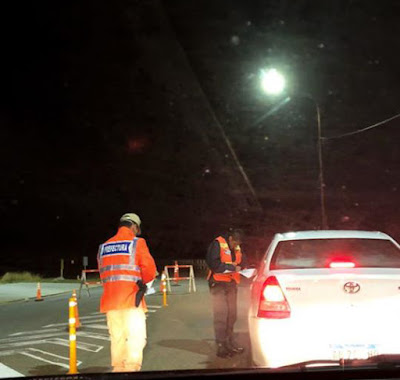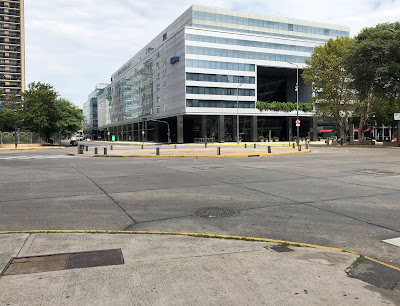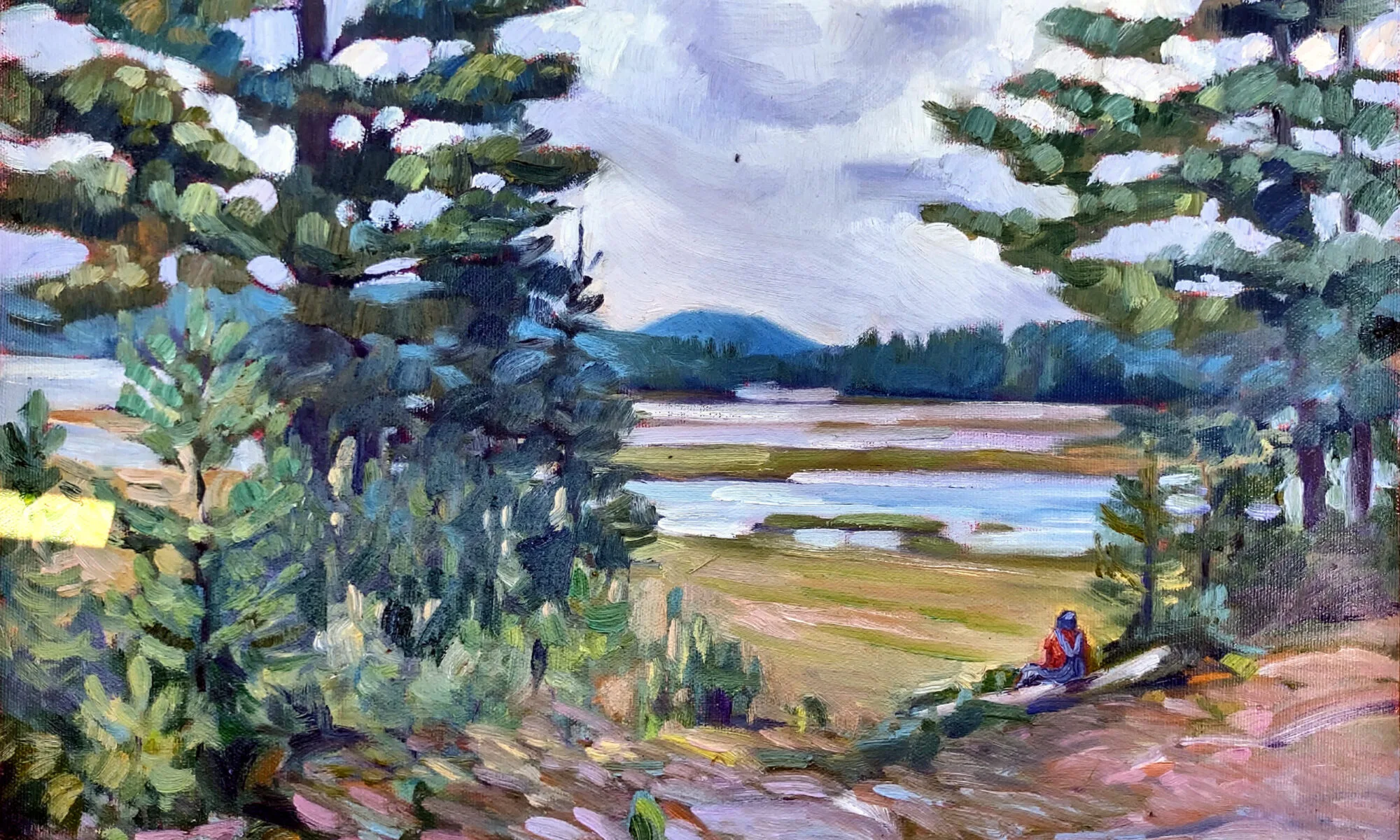Buenos Aires is a ghost town from coronavirus. We’re waiting here until all Americans who can be rescued, are.
 |
| Those soldiers at the door are to keep us in, and keep anyone without papers out. |
If you haven’t met Jane Chapin, she’s a little thing; I think she stretches the truth when she tells people she’s 5’1”. But she’s tough as the old boots she wears. I’d offered to drive the lead car in our midnight escape, since I’m used to dodging white-tailed deer. No; she would take the risk on her tiny shoulders.
We were barely out of the hosteria gate when we encountered our first jackrabbit. He decided his only hope was to lope ahead of us as fast as he could travel. That might work with pumas, but it slowed us down considerably.
 |
| Jane clears our first checkpoint. Photo courtesy Kellee Mayfield. |
Even at 4 AM the first checkpoint was open. The soldiers carefully scrutinized our papers, calling each of us by name to verify our identities. I had memorized the phrase, Lo siento, no hablo español. The guards were unfailingly polite but utterly serious.
It turned out that documents they cared most about were the health certificates issued by Dr. Carolina Codó. That’s just another example of the importance of local knowledge, since our embassy had told us we didn’t need them.
 |
| After daybreak, we drove a long way through a dense fog. Photo courtesy Douglas Perot. |
In our car, David Diaz and I sang silly songs to stay awake. A few hundred kilometers later, another jackrabbit drilled into Jane’s bumper, causing more damage than I thought possible. However, the whole panoply of stars were out, and we missed every guanaco and rhea dancing across the tarmac. The sun rose on a magical, stressful world.
We arrived at the Rio Gallegos airport in ample time. And then our troubles began. Our payments hadn’t transferred from Expedia; we would each have to pay again. (If you’re keeping score, we’ve paid for 14 flights so far, have used four, and have a reasonable expectation of using two more.)
If I can’t draw or sing to alleviate boredom, I make up and solve math problems in my head. This one was elementary: there were ten people in line, each transaction was taking more than ten minutes to complete, and our plane was leaving in an hour and a half. There was no way we were all going to make it on that plane. Doug and I were the last in line.
 |
| In Buenos Aires, we stood at the taxi stand trying to figure out where to go. Photo courtesy Douglas Perot. |
I recited the 23rd Psalm and prayed. The clock above the desk moved inexorably forward. The agents were as flustered as me, but finally we were finished. We tore off to the security checkpoint. There, waiting, was Jane. She was not going to board until she was sure we were on the flight too.
Any thought that we would mooch around the airport at Buenos Aires looking for a flight were immediately quashed. We were ordered to leave by a soldier. Buenos Aires is a ghost town, but Kellee Mayfield stood at the taxi stand and booked us rooms at the Hilton. At the hotel, another set of soldiers scrutinized our health certificate before allowing us to pass in.
 |
| The streets of Buenos Aires are empty. Photo courtesy Jane Chapin. |
We’re in a luxury hotel with no services—the laundry, restaurants, cafes and shops, rooftop pool, gym, etc. are all closed. There are as many staff as there are guests. We can leave to walk one block to the supermercadoor pharmacy. Anything other than that, and we’ll be arrested.
Our departure has been moved back to April 2. I imagine there are still American citizens in the provinces that they’re trying to round up and bring to Buenos Aires. A few more days in this hotel is minor if it brings someone else home, and it appears this is really and truly the last flight until May.
 |
| Kellee Mayfield waiting her turn at the pharmacy. We can only go in one at a time. |
Much more personally devastating was that last night my uncle, Robert Marusza, died of coronavirus at Buffalo General Hospital. He was a great man in both the personal and public sense, and very important to me. In normal times I’d be cancelling everything and heading to my home town. But these are not normal times. Funeral gatherings are banned in New York. Like his own children, I mourn from afar.










